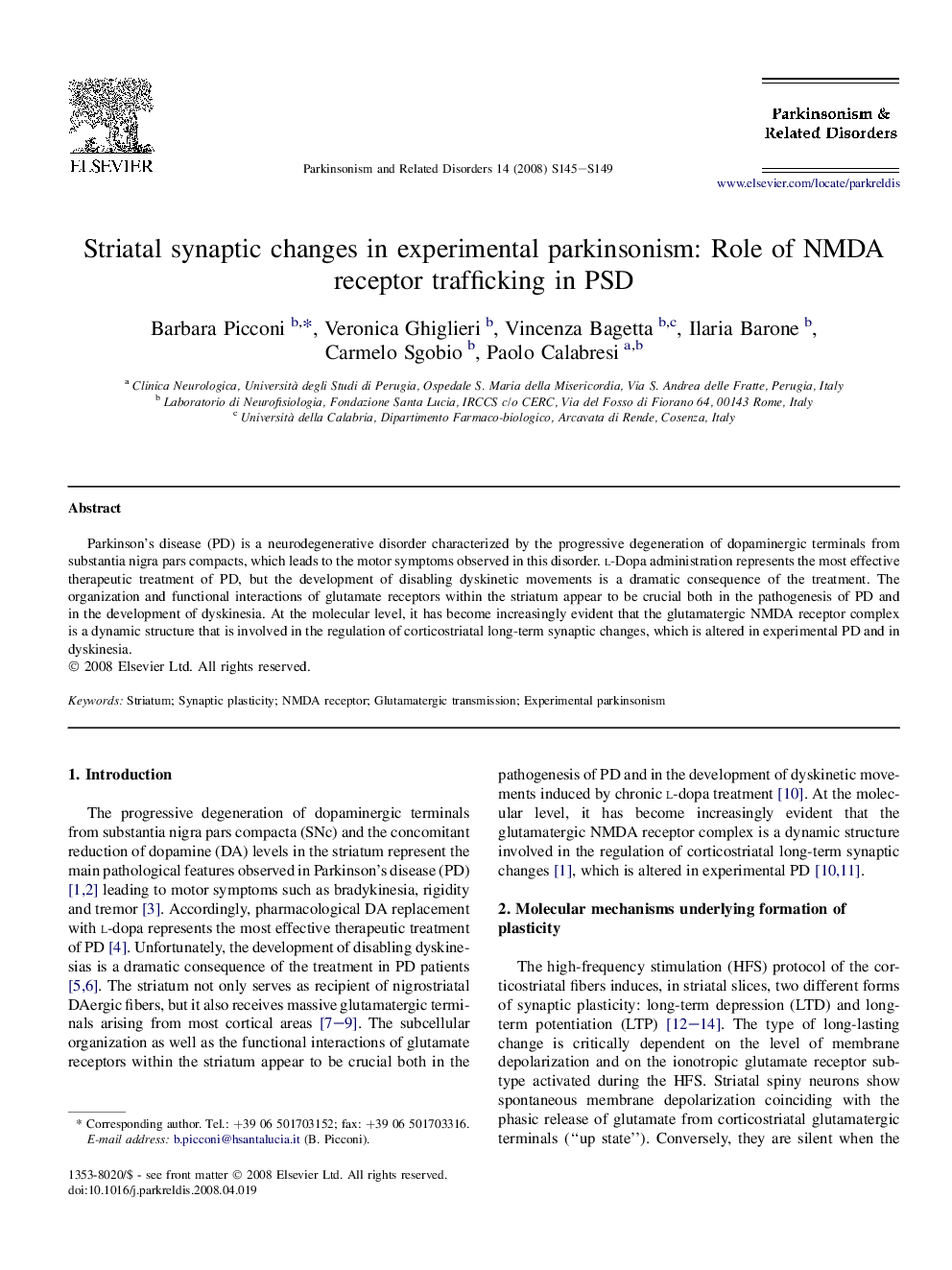| Article ID | Journal | Published Year | Pages | File Type |
|---|---|---|---|---|
| 1921720 | Parkinsonism & Related Disorders | 2008 | 5 Pages |
Parkinson's disease (PD) is a neurodegenerative disorder characterized by the progressive degeneration of dopaminergic terminals from substantia nigra pars compacts, which leads to the motor symptoms observed in this disorder. l-Dopa administration represents the most effective therapeutic treatment of PD, but the development of disabling dyskinetic movements is a dramatic consequence of the treatment. The organization and functional interactions of glutamate receptors within the striatum appear to be crucial both in the pathogenesis of PD and in the development of dyskinesia. At the molecular level, it has become increasingly evident that the glutamatergic NMDA receptor complex is a dynamic structure that is involved in the regulation of corticostriatal long-term synaptic changes, which is altered in experimental PD and in dyskinesia.
